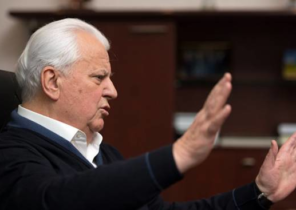
Not so long ago in the media leaked information that the company ExxonMobil requests that the U.S. Treasury Department to exempt it from sanctions-related restrictions, which would allow the company to resume its cooperation with the Russian oil giant Rosneft drilling in the Black sea. The Finance Ministry has refused to remove restrictions, as they are removed for humanitarian and political reasons, but not for reasons related to business, and this is the case of ExxonMobil. Consent to the removal of restrictions would enhance the concern with respect to the relations of the administration of the tramp with Putin’s Russia, especially as the U.S. Secretary Rex Tillerson (Rex Tillerson) has been CEO of the company when first applying for the lifting of sanctions.
And although the administration did the right thing by refusing to remove restrictions, such concessions are an integral part of the sanctions process. They help governments efficiently directed sanctions, to provide them with the flexibility to respond to changing circumstances. There are at least two reasons for this ability to direct and flexible is so important. The first reason is exclusively moral nature: for example, you cannot harm the children of Iraq, who are being held hostage in the conflict between the U.S. and Iraq. The second reason is more pragmatic: effectively imposed on politicians, the sanctions have pressure on them and reduced their ability to form alliances with countries that are also affected by the sanctions, and reduce rejection of sanctions on humanitarian grounds. Concessions contribute to ensuring that comprehensive sanctions have become more targeted and specific. Democracy (including such limited democracy, like apartheid South Africa) are more susceptible to sanctions than dictatorships, and pressure on voters turns into pressure on politicians.
There are lessons, which was hard to do, especially those that followed Iraq’s invasion in 1990 of Kuwait. Originally imposed by the UN security Council embargo is comprehensive, not targeted, that devastating impact on the Iraqi economy. Only in 1995 the United States and Iraq have agreed “oil for food” to ease the lives of civilians. The agreement allowed Iraq to a limited extent to sell oil to Finance humanitarian aid, weapons inspections by the UN, as well as reparations paid to victims of the 1990 invasion. Initial optimism on the part of the security Council hoped that the comprehensive economic sanctions can be an inexpensive way of conducting foreign policy, by contrast, has led to the abandonment of this approach in favor of “smart” or the impact of sanctions.
Thus, with Iran in the 2000s and 2010s United States and its European partners have tried to act on the basis of the lessons learned in the case of Iraq. During the most difficult period of sanctions, the United States expanded the definition of medical products permitted for import to Iran without a license, to avoid suffering of the ordinary Iranian population. These concessions, did not require any quid pro quo from Iran, was aimed at alleviating the suffering of Iranian civilians, despite the current political conflict, these actions also contributed to the decline of the perception that the Iranians are suffering because of the sanctions imposed.
Relief can also be aimed at promoting a very specific political goals. For example, in 2013, the US allowed the export to Iran of personal telecommunications devices, to help Iranian groups for civil rights of the population to communicate with each other. In January 2017 the US has removed restrictions from the Russian intelligence service FSB, to allow American companies to import to Russia personal products from the sphere of Internet technologies. FSB gave the Russians a license to import, so the relief was necessary to avoid complications of an innocent business between the US and Russia.
In the UN the removal of restrictions prescribed in the resolutions or given by the security Council, so their use is relatively straightforward, albeit politically complicated. The US has three main ways for the easing of sanctions. The first is through the law, when Congress or defines the permitted activities, or allows the President to make a ruling in each case in accordance with the rules established by Congress.
The second way is a universal license, when the Finance Ministry on its own initiative, recognizes and identifies the activities to be exceptions (for example, the provision of goods of humanitarian need in Iran) is to start that process does not require submission of any applications. Any American can enjoy universal licenses (and, for that matter, foreigners in General, I can assume that the support of the us government is a part of business).
A third way of obtaining indulgences — the one that tried to go Exxon: this is a specific license for a particular transaction, which in its absence, the sanctions prohibit. While the application of the conditions previously stated, which allows the company to apply for any exception that she needs, she can’t count on the indispensable obtaining this license, if it is directly contrary to American policy.
There is no special scheme for the licensing or denial of them, and for applying to the Ministry of Finance of restrictions related to the right to privacy, on this account there is not a lot of information. Some of the information available through quarterly and semiannual reports in the framework of the law on reform of trade sanctions, which focused on the issuance of licenses for agricultural and medical products to Sudan and Iran. A cursory glance at these reports shows that, for the most part, in the last 17 years on these types of goods, the Ministry of Finance issued a permit approximately two-thirds of applications, thus refusing only a few that can be counted on the fingers of one hand.
Application of ExxonMobil based on business considerations, not for humanitarian or political, that is not on the usual criteria which must be satisfied in order for the application was granted. The implied position of the company that the sanctions will not force Russia to come to terms with the political interests of America, since European companies may treat them with scorn, has certainly attractive: maintain a broad international coalition requires real commitment and diplomatic skills, even if the coalition will fail. Why American companies need to lose a profitable joint venture, maintaining the European security, which even the European companies are willing to violate?
This gives the administration trump the chance to go beyond simple refusal of the application. The sanctions are ineffective political tools when they are left to float freely, and these sanctions, of course, have long lost control. The administration trump should try to revise and fill new energy in the international response to Russian aggression. It would be a good sign of state administration from the administration that caused very serious and lasting doubt as to her interest in international diplomacy and long-standing American allies.






